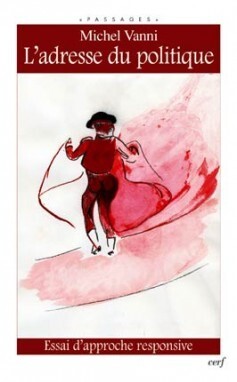En quoi une communauté politique répond-elle, et de quoi répond-elle ? Tel est l'enjeu du présent ouvrage. Or, les requêtes qui traversent le champ pratique sont toujours mal adressées : était-ce vraiment à nous de répondre, et de cette manière-là ? Y avait-il même à répondre ? Rien n'est jamais totalement assuré. C'est pourtant à travers cette " maladresse " essentielle que surgit –; toujours à nouveau –; un " nous " commun, fragile et constamment réinventé. L'auteur invite son lecteur à parcourir ici les différentes déclinaisons de cette maladresse politique, à travers les figures de la communauté, de l'institution, de la démocratie, et enfin celle du militant. Il s'agit là d'une tentative d'élaboration originale, qui s'appuie sur la théorie de la " responsivité " proposée par le philosophe allemand Bernhard Waldenfels. Cet essai se nourrit par ailleurs, à chaque étape, d'une confrontation avec certains des plus grands penseurs français actuels (Nancy, Rancière, Derrida et Badiou). Il se présente dès lors comme un parcours à travers tout un pan de la philosophie française contemporaine, au terme duquel c'est moins à une théorisation experte que Michel Vanni convie son lecteur qu'à une prise en charge de la fragilité créatrice de l'agir politique. -- What purpose does a political community serve, and what are its responsibilities? The present book takes up the challenge of answering these questions. Transversal questions arising in the public domain are always difficult to address: is it really for us to reply, and in this way? Should we be replying at all? Nothing is ever certain. Yet it is through these essential questions that a common and fragile 'we' emerges, constantly reinvented. The author invites the reader to explore the different avenues of that political issue; through figures of community life, institutions, democracy, and lastly that of the militant. It is an original tentative, based on the theory of 'responsivity' proposed by the German philosopher, Bernhard Waldenfels. This essay is also nourished, at each stage, by a confrontation with some of France's great contemporary thinkers (Nancy, Rancière, Derrida and Badiou). Like a path through a whole section of contemporary French philosophy, after which Michel Vanni invites the reader to assume the creative fragility of political action, rather than the theorisation of an expert.




